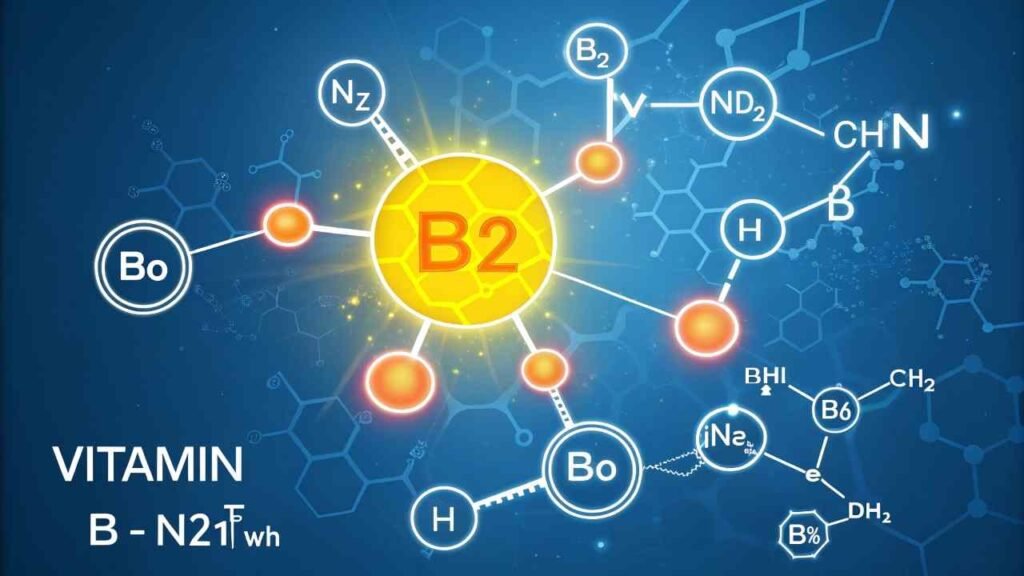Feeling tired or low on energy? Could a key nutrient be the issue? Let's quickly see how Vitamin B2 (riboflavin) is vital for your get-up-and-go.
Vitamin B2 is crucial for turning food into energy (ATP). It also helps iron work better and supports antioxidants. This helps fight fatigue and keeps you feeling vital.
At FINETECH, we know vital nutrients are key for health and product quality. My clients value the benefits that ingredients provide. Understanding Vitamin B2 shows its importance. Let's see how riboflavin powers us.
Beyond basic metabolism, how does Vitamin B2 help convert food into usable energy?
Know B vitamins give energy, but how does B2 do it specifically? Wondering about its exact role? Let's get to the core of B2's energy action.
Vitamin B2 forms two key coenzymes: FMN and FAD. These are essential for cellular respiration, driving the electron transport chain to make ATP (usable energy).
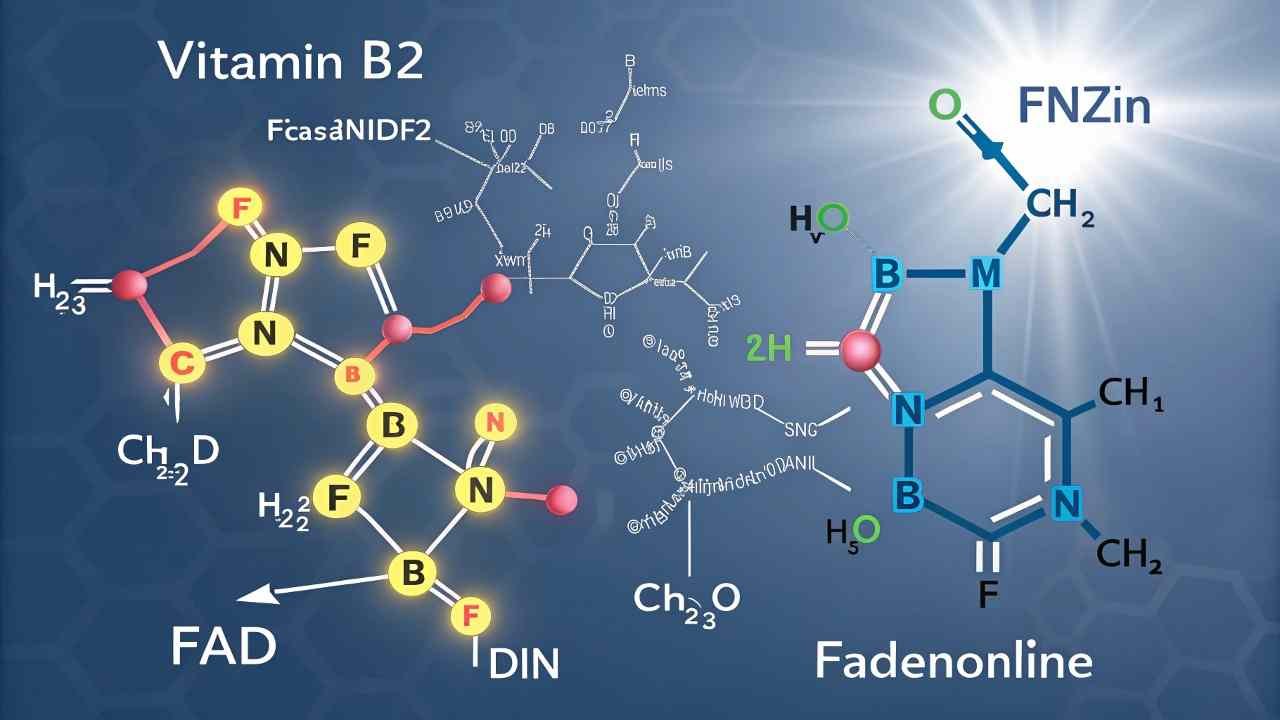
Riboflavin isn't just a helper; it's central to energy production. It forms FMN (flavin mononucleotide)1 and FAD (flavin adenine dinucleotide)2. These coenzymes are like special tools enzymes need to work.
FMN and FAD are vital in cellular respiration – how cells get energy from food. They act as electron carriers:
- Citric Acid Cycle (Krebs Cycle): FAD (as FADH2) captures high-energy electrons.
- Electron Transport Chain (ETC): FMN and FADH2 donate electrons here. This process produces most of the cell's ATP (energy currency).
- Fatty Acid Oxidation: FAD is also needed to break down fats for energy.
Without enough B2, FMN and FAD levels drop. This slows down energy production, as cells can't efficiently turn food into ATP. This is why B2 is key for energy.
B2 Coenzymes in Energy:
| Coenzyme | Needed For | Function | Result |
|---|---|---|---|
| FAD | Krebs Cycle, Fat Breakdown, ETC | Carries electrons (as FADH2) | ATP Production |
| FMN | Electron Transport Chain (Complex I) | Transfers electrons | ATP Production |
Can adequate Vitamin B2 intake help reduce feelings of tiredness or fatigue?
Feeling constantly tired? Could more Vitamin B2 help? Let's look at the link between riboflavin and beating fatigue.
Yes. Since Vitamin B2 is vital for energy production, getting enough can help prevent and reduce tiredness caused by its deficiency or low cellular energy.
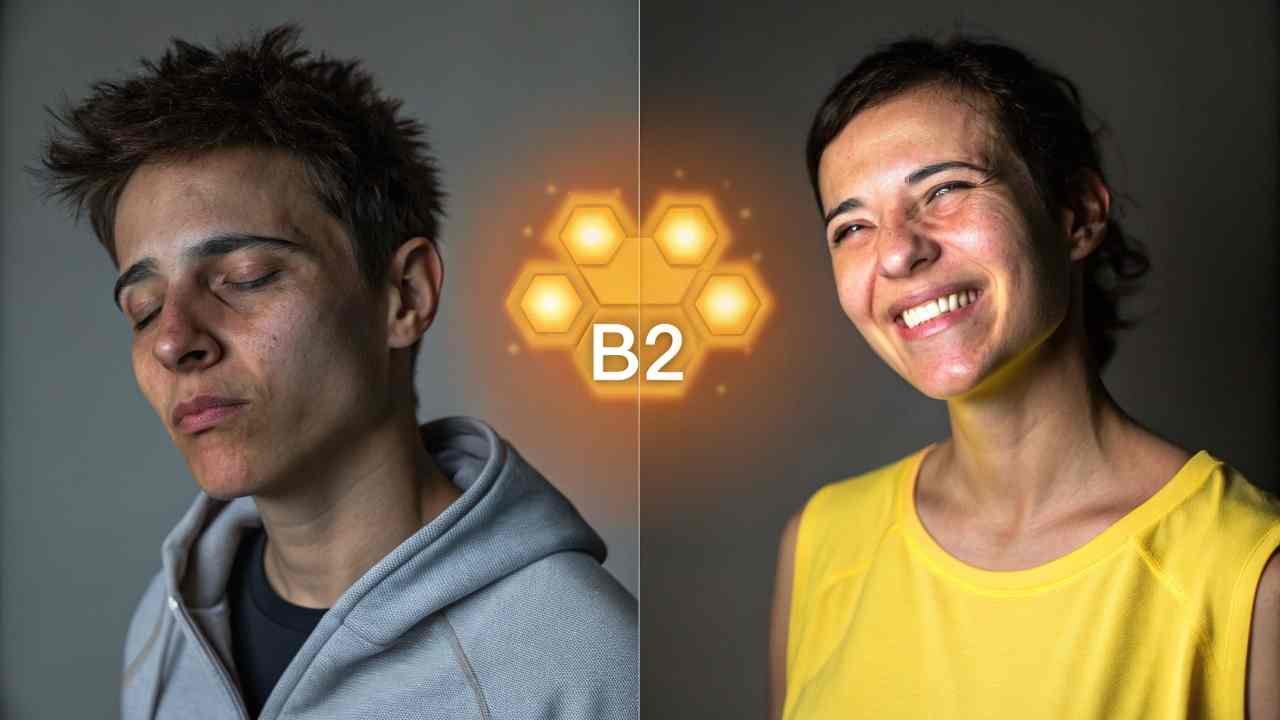
Fatigue is common. B vitamin deficiencies are often a factor. Because B2 is key for making ATP, a lack of it can easily lead to low energy. If riboflavin is low, FAD and FMN are low. This means less efficient energy production from food, leading to tiredness.
Riboflavin deficiency (ariboflavinosis) clearly lists fatigue as a symptom. Even mild shortfalls might affect energy. B2 also helps other B vitamins (B6, Folate) work properly, which also impacts energy.
It's important to know B2 isn't a stimulant like caffeine. It helps your body make its own energy efficiently. If fatigue has other causes (stress, poor sleep), B2 alone won't fix it, but having enough is a basic need for good energy.
Fatigue & B2 Link:
| Aspect | Connection to Fatigue | Implication |
|---|---|---|
| ATP | B2 needed for ATP → low B2 = low energy | Less cellular fuel means feeling tired |
| Deficiency | Fatigue is a known symptom | Correcting it can help |
| Other B Vits | Helps B6 & Folate work | Broader impact on energy |
What is the role of Vitamin B2 in iron absorption and preventing anemia?
Worried about iron or anemia? Did you know B2 helps your body use iron? Let's see how riboflavin affects iron metabolism.
Vitamin B2 helps with iron absorption and its use in making hemoglobin. This means it plays a part in preventing iron-deficiency anemia, a common cause of fatigue.
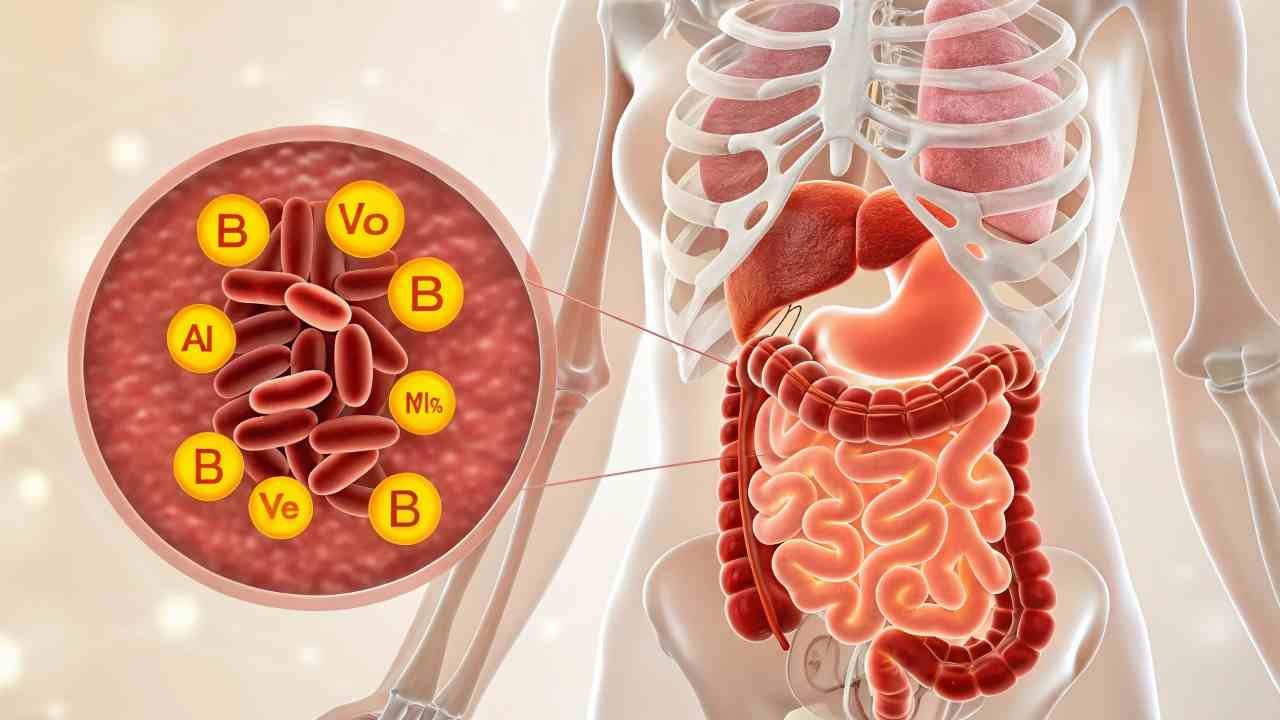
Iron-deficiency anemia causes fatigue and weakness. Vitamin B2 supports iron in several ways:
- Enhances Iron Absorption3: May help convert iron into a more absorbable form in the gut.
- Mobilizes Stored Iron4: Helps release iron from body stores (ferritin) so it can be used.
- Aids Red Blood Cell Production5: Supports folate metabolism, which is needed for making new red blood cells.
Studies show B2 deficiency can worsen iron deficiency. Correcting B2 deficiency alongside iron supplementation can be more effective than iron alone in some cases. So, adequate B2 is important for healthy iron levels and preventing anemia.
B2's Role with Iron:
| Iron Process | B2's Help | If B2 is Low... |
|---|---|---|
| Absorption | May help iron get absorbed | Less iron absorbed |
| Mobilization | Helps release stored iron | Iron stays locked up |
| Red Blood Cell Making | Supports folate for new cells | Fewer red blood cells made |
How does Vitamin B2 support the body's natural antioxidant defense systems?
Want to protect cells from damage? How does B2 help with antioxidants? Let's explore B2's role in your body's defenses.
Vitamin B2 is vital for regenerating glutathione, a key cellular antioxidant. As a coenzyme (FAD) for glutathione reductase, B2 helps protect cells from damaging oxidative stress.
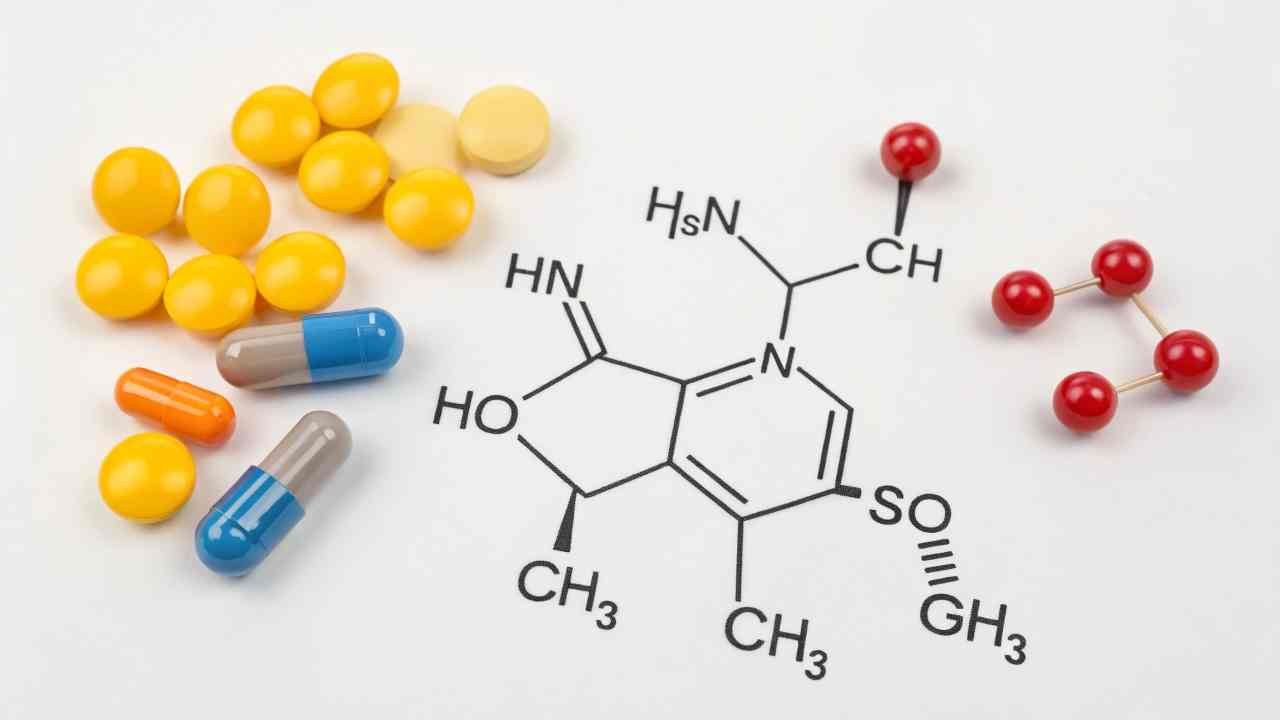
Oxidative stress damages cells and links to aging and disease. Our bodies fight this with antioxidants. Glutathione (GSH)6 is a major internal antioxidant. When glutathione does its job, it becomes oxidized (GSSG). It needs to be recycled back to active GSH.
This recycling is done by the enzyme glutathione reductase. This enzyme needs FAD (from Vitamin B2) to work.
So, if B2 is low, FAD is low. This means glutathione reductase works poorly, so less active GSH is available. This weakens the cell's antioxidant defenses, making it more vulnerable to damage. By supporting the glutathione system, B2 helps protect DNA, proteins, and cell membranes.
B2 & Antioxidant Defense:
| Component | Function | B2 Dependence | If B2 is Low... |
|---|---|---|---|
| Glutathione (GSH) | Main antioxidant | Needs recycling | Less active GSH available |
| Glutathione Reductase | Recycles GSH | Needs FAD (B2) | Enzyme works poorly |
| FAD (from B2) | Coenzyme for Glutathione Reductase | Direct | Not enough FAD for the enzyme |
What are practical tips for ensuring your diet provides enough Vitamin B2 for optimal well-being?
Want to get enough B2 for good energy and health? Looking for simple ways to boost it? Let's list some easy dietary tips.
Eat B2-rich foods like dairy, lean meats, eggs, leafy greens, legumes, and fortified grains. Proper food storage (avoid light) and cooking (steam, don't over-boil) help keep B2.
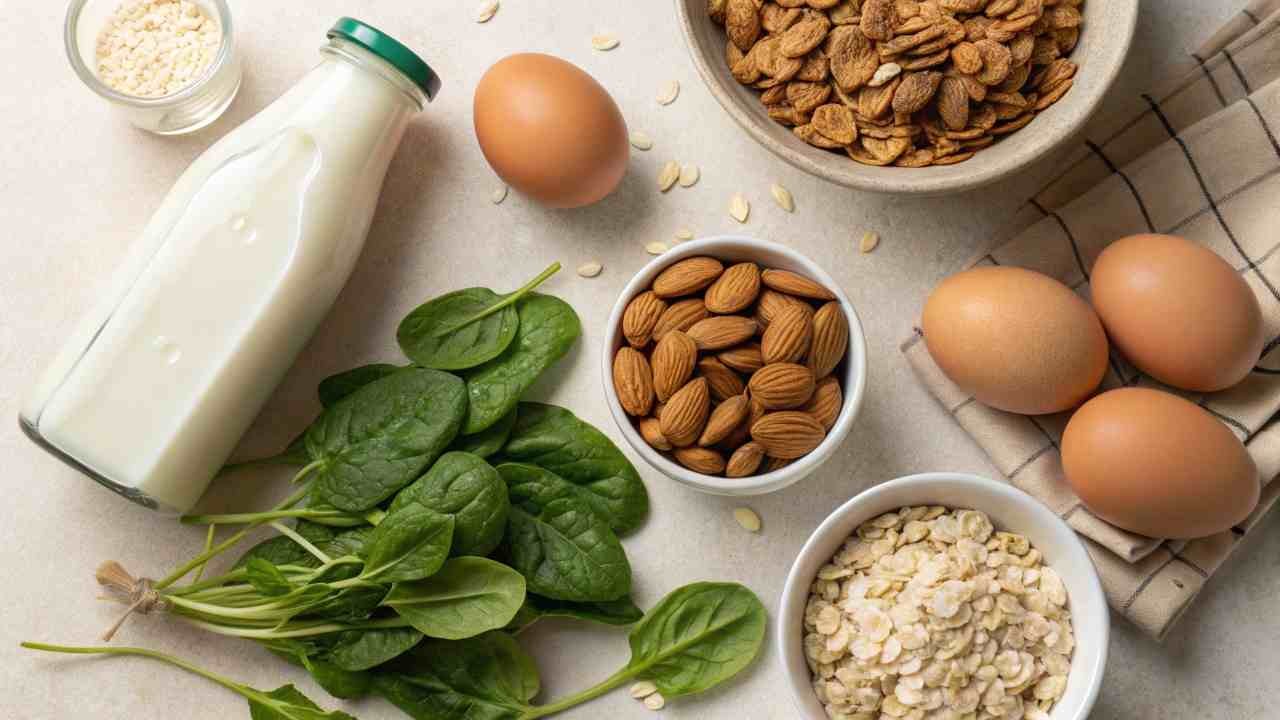
Getting enough B2 is usually possible with a varied diet.
Top Food Sources:
- Dairy: Milk, cheese, yogurt.
- Meats/Poultry: Lean meats, liver (very high), chicken.
- Eggs: Whole eggs.
- Green Leafy Veggies: Spinach, asparagus, broccoli.
- Legumes: Lentils, peas.
- Nuts/Seeds: Almonds.
- Fortified Foods: Many cereals, breads, and pasta are enriched with B2. Check labels.
Tips to Preserve B2:
- Protect from Light: B2 is light-sensitive. Milk in opaque containers is better.
- Limit Water in Cooking: B2 is water-soluble. Steam or microwave instead of boiling. If you boil, use minimal water.
- Avoid Baking Soda: Alkalinity destroys B2.
A balanced diet with these foods usually provides enough riboflavin. For specific needs, fortified foods (which FINETECH can supply B2 for) or supplements are options.
Key B2 Foods:
| Food Group | Examples |
|---|---|
| Dairy | Milk, Yogurt, Cheese |
| Meats/Eggs | Liver, Lean Meats, Eggs |
| Vegetables | Spinach, Broccoli, Asparagus |
| Legumes/Nuts | Lentils, Almonds |
| Fortified | Cereals, Breads |
Conclusion
Vitamin B2 (riboflavin) is crucial for energy production from food. It also aids iron use and antioxidant defense, helping reduce fatigue and supporting overall vitality.
-
Understanding FMN's role can enhance your knowledge of cellular energy processes and nutrition. ↩
-
Exploring FAD's function will deepen your insight into metabolic pathways and energy production. ↩
-
Understanding how Vitamin B2 enhances iron absorption can help improve dietary choices and combat anemia. ↩
-
Exploring this topic can provide insights into how to effectively utilize iron reserves for better health. ↩
-
Learning about this connection can help in understanding the importance of vitamins in blood health and anemia prevention. ↩
-
Understanding Glutathione's role can enhance your knowledge of antioxidants and their importance in health. ↩

